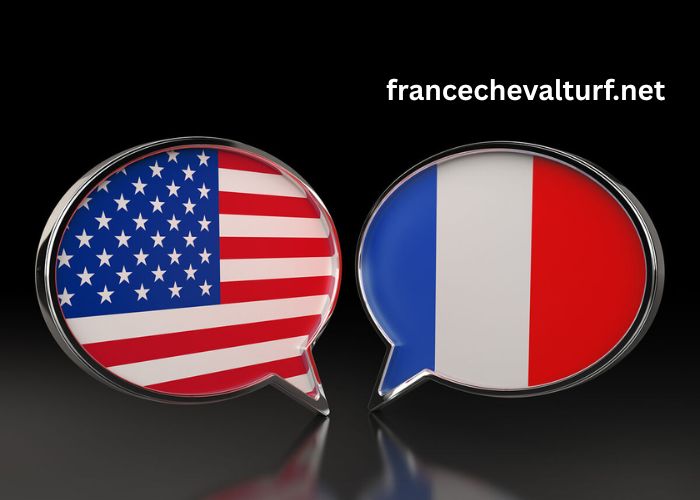Language plays a vital role in communication, especially when connecting across cultures. The ability to translate English to French has become increasingly valuable in today’s globalized world.
From academic research to international business, people rely on English to French services for accurate, nuanced translations. It not only bridges language gaps but also preserves cultural integrity and intent.
What Is The Importance Of English To French Translation Today?
As international collaborations increase, so does the demand for seamless language translation. English to French translation is especially crucial due to the widespread use of both languages across continents and industries. Whether it’s literature, legal documents, or digital content, English to French translation helps maintain clarity and meaning across borders. Businesses, educators, and travelers alike depend on these services for smooth interactions and accurate communication.
The significance of English to French lies not only in word conversion but also in preserving the message, tone, and cultural context. English to French translation requires more than just a dictionary—it needs an understanding of idioms, grammar, syntax, and even local expressions. With countries like France, Canada, Belgium, and Switzerland using French officially, the reach of English to French translation is enormous and continues to grow with increasing globalization.
How Can You Learn English To French Effectively?
Mastering English to French translation starts with a deep understanding of both grammar systems and vocabulary. Learners should immerse themselves in both languages through reading, speaking, and listening. Watching French films with English subtitles or reading bilingual books are effective ways to internalize patterns. Additionally, many language learners use apps, courses, and professional tutors to improve their English to French skills systematically.
Consistency and practice are the pillars of successful English to French learning. Setting daily goals, practicing writing short paragraphs, and engaging in language exchanges with native speakers significantly boost retention and fluency. Another great method is to translate your everyday thoughts from English to French, helping you to think naturally in both languages. Over time, this process becomes instinctive, and your ability to translate English to French accurately will dramatically improve.
What Are The Best Tools For English To French Translation?
There are countless tools available for English to French translation that cater to different levels of proficiency and needs. Google Translate is one of the most widely used platforms, offering quick and free English to French translations for phrases, documents, and websites. Other options include DeepL, Reverso, and Microsoft Translator, which often provide more contextually accurate results. These tools use advanced algorithms and neural networks to better understand sentence structure and cultural nuances.
In addition to general tools, there are industry-specific English to French solutions tailored for legal, medical, and technical documents. These platforms not only translate but also localize content, ensuring it meets regional standards and expectations. For businesses looking to expand internationally, investing in professional English to French translation services ensures legal compliance and brand consistency. While tools are helpful, human oversight remains key in maintaining quality and tone in English to French translation.
Who Needs English To French Translation The Most?
The need for English to French translation spans across industries and sectors. International businesses, for instance, rely on English to French services to localize marketing campaigns, customer support content, contracts, and websites. Without proper English to French translation, companies risk losing potential clients or miscommunicating brand values. Governmental and nonprofit organizations also benefit by translating educational, legal, and public policy content accurately to reach French-speaking communities.
Students and researchers frequently require English to French translations when accessing scholarly material written in English or preparing papers for French-speaking institutions. The tourism industry, which thrives on multilingual communication, also depends heavily on English to French to welcome travelers and provide services. Even individuals involved in immigration or dual citizenship applications must submit English to French translated documents, making these services essential in both personal and professional contexts.
What Are Common Challenges In English To French Translation?
Despite technological advances, English to French translation still comes with several challenges. One major issue is handling idiomatic expressions that don’t have direct equivalents in French. This can lead to awkward phrasing or misinterpretation if the translator doesn’t understand the cultural context. For example, translating “kick the bucket” literally into French would confuse native speakers unless it’s localized properly to reflect its meaning—“mourir” (to die). These situations highlight the delicate nature of English to French translation and the importance of understanding both language and culture.
Another challenge in English to French is grammatical gender and agreement, which doesn’t exist in the same way in English. Every noun in French is gendered, and adjectives must agree in gender and number, which can complicate translation from English. Additionally, sentence structure in French often differs from English, requiring rearrangement for natural flow. These technicalities demand focus and expertise, proving that English to French translation is more complex than it appears on the surface. Precision, patience, and cultural awareness are all key to overcoming these hurdles.
How Can Businesses Benefit From English To French Translation?
For companies operating across English and French-speaking regions, English to French translation is essential for market penetration, customer engagement, and regulatory compliance. A website or product manual translated accurately into French can increase sales, boost customer satisfaction, and enhance trust among French-speaking clients. Poor or automated-only translations, on the other hand, can harm credibility and create confusion, especially in legally binding texts like contracts, warranties, or safety instructions. A well-executed English to French strategy opens doors to millions of consumers across Europe, North America, and parts of Africa.
Moreover, English to French translation plays a critical role in branding. Cultural references and marketing slogans must be adapted rather than translated word-for-word to resonate with French-speaking audiences. This practice, known as transcreation, blends creativity with linguistic precision. Businesses that invest in professional English to French translation not only expand their market reach but also show respect and understanding toward the target audience. Ultimately, English to French translation is a powerful tool that drives growth and builds sustainable cross-cultural relationships in global commerce.
Conclusion
The ability to convert English to French effectively is more important than ever in our interconnected world. Whether for personal use, academic pursuits, or international business, accurate and culturally sensitive English to French translation enhances understanding, promotes inclusivity, and opens countless opportunities. With the right tools, methods, and dedication, anyone can master English to French communication and unlock the full potential of global connection. As language continues to evolve, so will the demand for precise, empathetic, and context-aware English to French translation across every industry.




